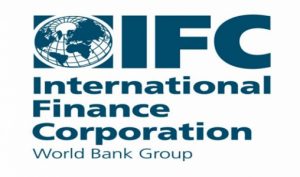 International Financial Corporation (IFC), a member of the World Bank Group, approved last year $839 million loans to banks in North Africa & Middle East region to help them provide trade financing for their clients, boost cross border trade and foster economic development in this region.
International Financial Corporation (IFC), a member of the World Bank Group, approved last year $839 million loans to banks in North Africa & Middle East region to help them provide trade financing for their clients, boost cross border trade and foster economic development in this region.
In fiscal year 2016, IFC signed three trade financing agreements with leading banks in North Africa & Middle East to help their clients access international markets and import critical commodities, including raw materials, pharmaceuticals, fertilizers, spare parts, and capital goods.
These included Lebanese Société Générale de Banque au Liban (SGBL) and two banks in Egypt – NBK Egypt and Al Baraka Bank.
The three banks, in addition to another 29 banks in MENA, are part of IFC’s Global Trade Finance Program (GTFP), which offers global and regional banks guarantees covering payment risk against letters of credit and other trade-related transactions.
The $5 billion program extends and complements the capacity of banks to deliver trade financing by providing risk mitigation in new or challenging markets where trade lines may be constrained. The facility also offers partner banks access to trade funding for post-shipment finance to their clients.
“Supporting cross-border trade in this region is a priority for IFC “, said Mouayed Makhlouf, IFC Regional Director for North Africa & the Middle East. “Linking local markets with global economies can help foster economic growth and drive development.”
Over the years, IFC’s Global Trade Finance Program (GTFP) has been engaged in the low-income economies classified as International Development Association (IDA) countries and Fragile and Conflict-Affected States (FCS).
Since its inception, GTFP has supported over $6.8 billion in MENA through over 8,250 trade transactions, of which around $3.2 billion of trade was supported in IDA countries and $2.9 billion in FCS countries. The main countries covered include Lebanon, Pakistan, Egypt, Jordan, Afghanistan, and the West Bank and Gaza.
IFC, a member of the World Bank Group, is the largest global development institution focused on the private sector in emerging markets.
In FY16, IFC long-term investments in developing countries rose to nearly $19 billion, which helped the private sector end extreme poverty and boost shared prosperity.
